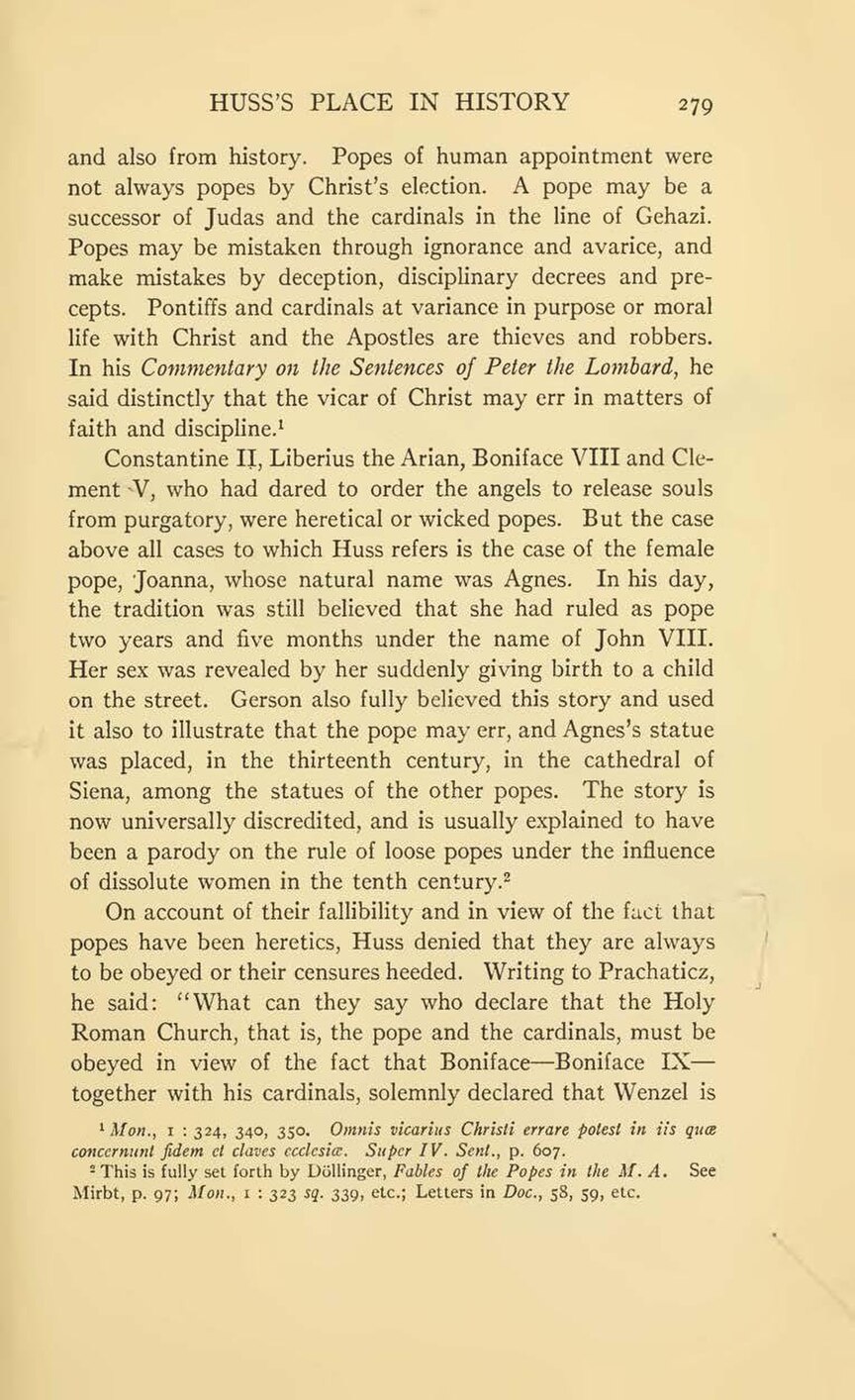and also from history. Popes of human appointment were not always popes by Christ’s election. A pope may be a successor of Judas and the cardinals in the line of Gehazi. Popes may be mistaken through ignorance and avarice, and make mistakes by deception, disciplinary decrees and precepts. Pontiffs and cardinals at variance in purpose or moral life with Christ and the Apostles are thieves and robbers. In his Commentary on the Sentences of Peter the Lombard, he said distinctly that the vicar of Christ may err in matters of faith and discipline.[1]
Constantine II, Liberius the Arian, Boniface VIII and Clement V, who had dared to order the angels to release souls from purgatory, were heretical or wicked popes. But the case above all cases to which Huss refers is the case of the female pope. Joanna, whose natural name was Agnes. In his day, the tradition was still believed that she had ruled as pope two years and five months under the name of John VIII. Her sex was revealed by her suddenly giving birth to a child on the street. Gerson also fully believed this story and used it also to illustrate that the pope may err, and Agnes’s statue was placed, in the thirteenth century, in the cathedral of Siena, among the statues of the other popes. The story is now universally discredited, and is usually explained to have been a parody on the rule of loose popes under the influence of dissolute women in the tenth century.[2]
On account of their fallibility and in view of the fact that popes have been heretics. Huss denied that they are always to be obeyed or their censures heeded. Writing to Prachaticz, he said: “What can they say who declare that the Holy Roman Church, that is, the pope and the cardinals, must be obeyed in view of the fact that Boniface—Boniface IX—together with his cardinals, solemnly declared that Wenzel is
